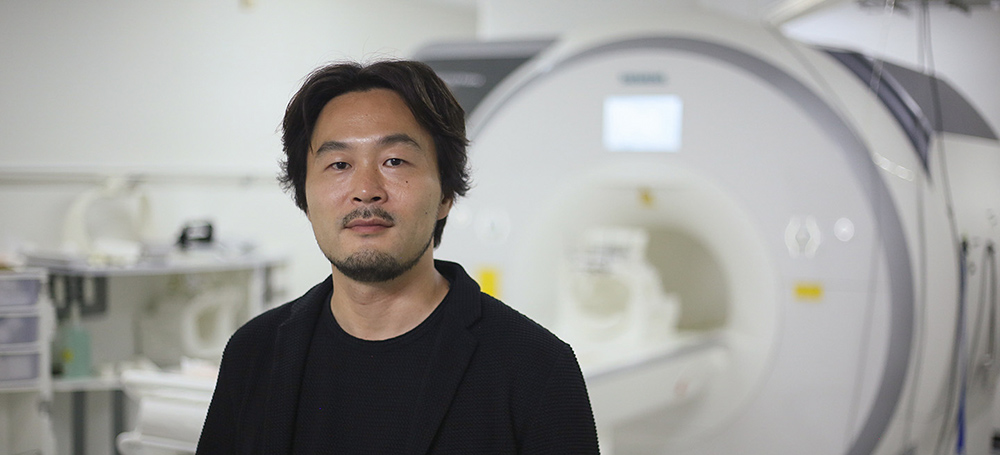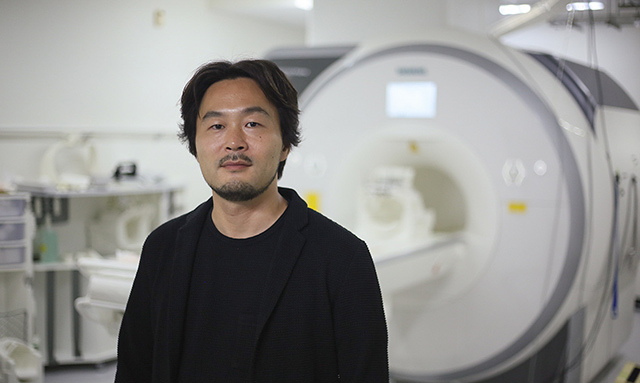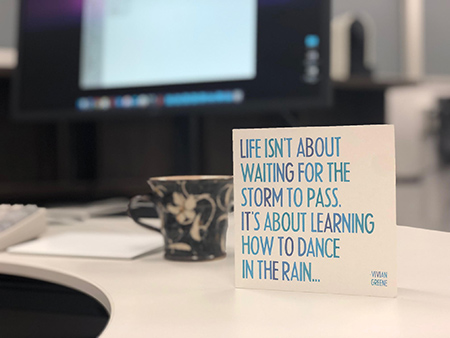Finding the diamond in the rough
Jan. 24, 2020
Amanda Alvarez


Why do we make surprising decisions or suddenly rethink our objectives? With hindsight, strange choices may make sense, but could we analyze these processes and reasons in realtime? Kazuhisa Shibata thinks so. “My goal is to know myself through an understanding of the subconscious. There is so much information processing, maybe 95% of all brain function, that is outside of conscious access. People have the illusion or belief that they can control the self, but in reality we have almost no control,” which may be the source of bizarre or unexplained decisions.
As a new research team leader at the RIKEN Center for Brain Science, Shibata is no stranger to unpredictable course changes in life. With a tenured faculty position at Nagoya University, “I thought, ‘I’m done’.” But he was jolted out of his secure routine by the deaths of two colleagues in the neuroscience field. “There was no reason to wait for time to pass,” Shibata reflects. “I should do what I want to do now,” which was devote more time to pure research. He decided to quit and pursue a new job search, finally opening his lab at CBS in September 2019.
For Shibata this marks a return to the area at the border of Tokyo and Saitama prefectures where he grew up. “I didn’t have a childhood dream of being a scientist. Even now I can’t believe that I’m doing science here! I continue to do it because it’s fun, and as long as I can enjoy it and continue to grow. It’s selfish, in a way,” he laughs. As an electrical engineering major, he studied neural networks like perceptrons and had an interest in the human brain and psychology. “But I thought you have to be a medical doctor to do neuroscience, and I wasn’t. Then a friend told me about a book, ‘Computational Neuroscience’ by Mitsuo Kawato. And I became his student based on this book.”
At the Nara Institute of Science and Technology, Shibata learned about applying approaches like reverse engineering and input-output analyses to the brain. “When integrated systems can’t be separated, an engineer infers the dynamics and deduces relationships. Likewise, a psychologist can observe the correspondence between a stimulus and someone pressing a button. But you can’t see individual parts of the brain with this approach alone. Kawato gave me the framework of computational neuroscience, using mathematical or physical models to infer the internal mechanisms of the brain,” says Shibata. “And I thought, ‘I can do this!’”
Following graduate school training in human neuroimaging methods like MEG and fMRI and computational modeling techniques to study visual attention, Shibata spent seven years at Boston and Brown universities. There he concentrated on ‘neural feedback’, a precise, non-invasive way to change brain activity. The concept comes from experiments in biofeedback, where human subjects could learn to control their blood pressure, body temperature or skin conductance. “We measure a subject’s fMRI, in almost realtime. It’s possible to know which part of the brain is active right now,” explains Shibata. “We give that information to subjects, and they can learn to change their brain signals themselves.” The feedback can help people get better on visual and pattern recognition tasks, for example.

Once the researchers have lots of data on the particular brain activity associated with each viewed image, they can ‘decode’ what a person was seeing just based on their brain activity. The experiments on decoded neural feedback revealed an “automated unconscious training system” for the brain, as Shibata describes it. “This paper solved a controversy in perceptual learning and got a lot of attention, but also brought pressure,” Shibata recalls. “So many scientists have only one interesting study, but now as a principal investigator I have to find my own big question.”
And there are plenty of puzzles to investigate at the intersection of the brain’s conscious and subconscious. Preferences, intuitions and biases all come from the unconscious. “Understanding yourself better and knowing your biases, you can learn to control yourself better,” says Shibata. This kind of learning is also important for dealing with life’s unexpected twists and turns, a philosophy captured in the Vivian Greene quote ‘Life isn't about waiting for the storm to pass, it's about learning to dance in the rain’. “I have come to believe that,” Shibata affirms.



